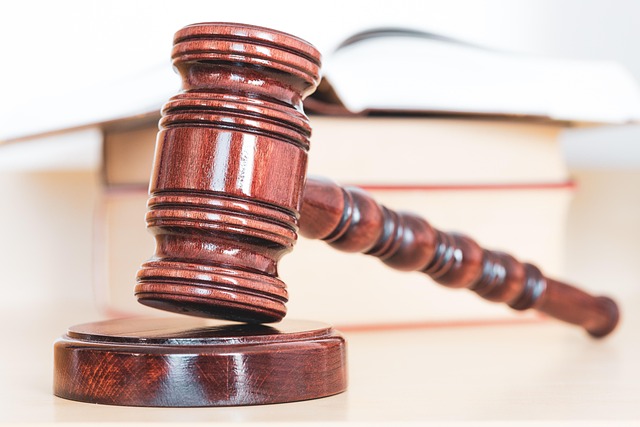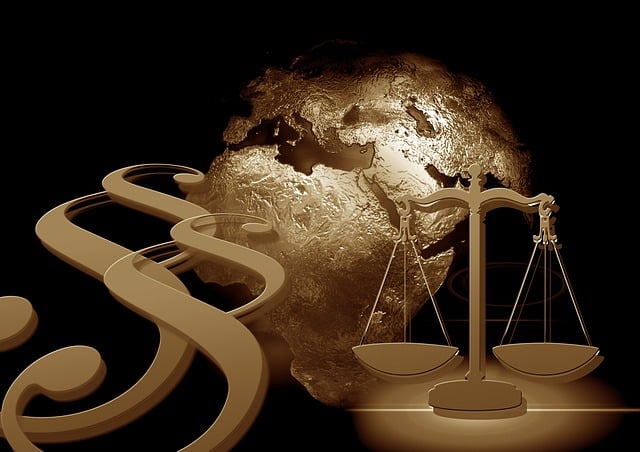Environmental crimes, including deforestation, pollution, and wildlife trafficking, threaten global ecosystems and public health. To combat this, there's a growing push for Sentencing Guidelines Reform and Policy Changes. Prosecutors are now pursuing these cases aggressively, with the goal of harsher punishments and deterrence. Outdated legal frameworks need revision to reflect the severity of environmental crimes, leading to more consistent and effective sentencing. Sentencing Guidelines Reform should enhance penalties for repeat offenders, especially in white-collar crime cases. Policy Changes target all culprits, from corporations to individuals, emphasizing accountability and positive environmental change. These reforms aim to balance justice with retribution, creating a robust legal framework to discourage future offenses and promote sustainability.
“Environmental Crime Trials: Unraveling the Complex Web of Justice explores the intricate intersection of environmental protection and legal punishment. This article delves into the growing concern of environmental crimes, examining their scope and profound impact on ecosystems. We analyze current legal frameworks and identify limitations in addressing these heinous acts. Furthermore, it highlights the significance of sentencing guidelines reform and proposed changes to enhance punitive measures. Additionally, it discusses policy shifts as a catalyst for environmental justice.”
- Understanding Environmental Crime: The Scope and Impact
- Current Legal Frameworks and Their Limitations
- The Role of Sentencing Guidelines in Environmental Cases
- Proposed Reforms: Enhancing Punitive Measures
- Policy Changes and Their Potential Effect on Environmental Justice
Understanding Environmental Crime: The Scope and Impact
Environmental crimes, a growing concern worldwide, encompass a range of illicit activities that cause significant harm to our planet’s ecosystems and pose severe risks to public health. These include illegal deforestation, toxic waste disposal, pollution of air and water bodies, and wildlife trafficking. Understanding the scope and impact of these crimes is pivotal in combating them effectively. The consequences are far-reaching, affecting not just the environment but also communities dependent on it for their livelihoods.
The recent surge in environmental awareness has led to calls for stricter Sentencing Guidelines Reform and Policy Changes. As such, prosecutors now have a clearer mandate to pursue these cases aggressively, aiming for winning challenging defense verdicts. Moreover, the unique nature of these crimes, often involving white collar and economic crimes, necessitates strategic approaches. The onus is not just on law enforcement but also on the courts to interpret and apply existing laws to reflect the severity of environmental crimes, thereby deterring future misconduct within philanthropic and political communities.
Current Legal Frameworks and Their Limitations
The current legal frameworks governing environmental crimes often struggle to keep pace with the evolving nature of these offenses. While many countries have enacted laws specifically targeting environmental violations, there are significant gaps and limitations in sentencing guidelines. This results in inconsistent and often lenient punishments for polluters and destroyers of natural resources, undermining the effectiveness of environmental protection efforts. Sentencing Guidelines Reform is essential to addressing this issue, ensuring that penalties reflect the severity of the crime and serve as a deterrent to future offenses.
Policy changes must focus on strengthening environmental regulations and promoting accountability. Traditional approaches often target the symptoms without tackling the root causes effectively. A more robust legal framework should incorporate provisions for enhanced penalties for repeated offenders, particularly in cases involving white-collar crimes related to environmental degradation. An unprecedented track record of successful prosecutions could set a precedent, demonstrating the commitment to upholding environmental standards and holding individuals accountable for their actions.
The Role of Sentencing Guidelines in Environmental Cases
In environmental crime trials, sentencing guidelines play a pivotal role in ensuring justice and deterring future transgressions. These guidelines, which have evolved over time, reflect society’s growing awareness of the severity and far-reaching impacts of environmental crimes. They serve as a framework for judges to impose proportional sentences, taking into account the unique circumstances of each case. Sentencing Guidelines Reform has become a key focus in light of policy changes aimed at addressing the complex nature of these offenses.
The process involves balancing the need for retribution and rehabilitation while considering the broader ecological and societal implications. This is particularly significant as environmental crimes often span multiple jurisdictions, involving corporate and individual clients from diverse respective business sectors. Moreover, sentencing guidelines encourage a holistic approach by factoring in the philanthropic and political communities’ roles, ensuring that accountability extends beyond legal consequences to drive positive environmental change.
Proposed Reforms: Enhancing Punitive Measures
To combat environmental crime effectively, proposed reforms focus on enhancing punitive measures. This involves revisiting existing sentencing guidelines to ensure they reflect the severity and impact of such offenses. By implementing stricter penalties, including enhanced fines and longer prison terms, potential offenders are deterred from engaging in white-collar and economic crimes that harm the environment. These reforms aim to send a clear message that environmental criminality will no longer be tolerated.
Policy changes should also target both corporate and individual clients responsible for environmental violations. While some may argue for leniency, especially if internal controls were in place, others advocate for no complete dismissal of all charges. Instead, a balanced approach that considers corporate cooperation in investigations and the level of culpability could lead to more just outcomes. Ultimately, these reforms seek to create a more robust legal framework that discourages environmental crimes and promotes accountability.
Policy Changes and Their Potential Effect on Environmental Justice
Policy changes, particularly Sentencing Guidelines Reform, are pivotal moments in the pursuit of environmental justice. Historically, white-collar crimes often received lighter sentences compared to their impact on the environment. However, recent reforms aim to address this imbalance by holding businesses and individuals accountable for their role in ecological degradation. These adjustments could significantly alter the landscape of environmental litigation, ensuring that corporate perpetrators face consequences commensurate with the severity of their offenses.
The new policies have an unprecedented track record in reshaping how we approach environmental crime trials. By updating sentencing guidelines, authorities send a powerful message: environmental destruction is no longer treated as a minor infraction. This shift encourages businesses to adopt more sustainable practices and fosters a culture where environmental responsibility becomes a core consideration in respective business operations.
Environmental crime, a growing concern worldwide, demands robust legal responses. While current frameworks have limitations, sentencing guidelines play a pivotal role in ensuring justice. Proposed reforms aim to enhance punitive measures, reflecting the severity of these crimes. By implementing Sentencing Guidelines Reform and Policy Changes, we can foster Environmental Justice, encouraging accountability and deterring future offenses. These adaptations are essential steps towards a sustainable and equitable future, where environmental protection aligns with strict legal consequences.






